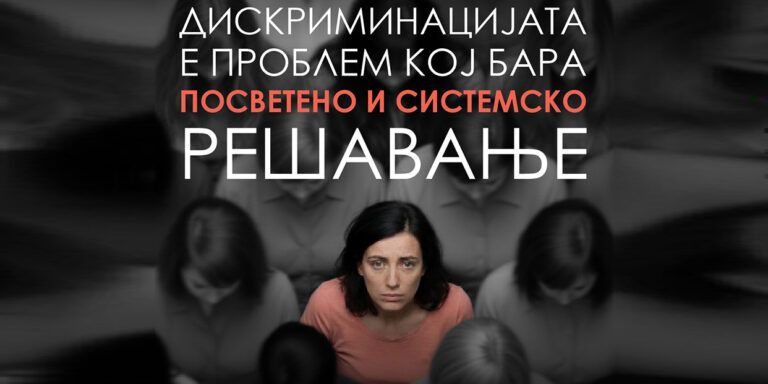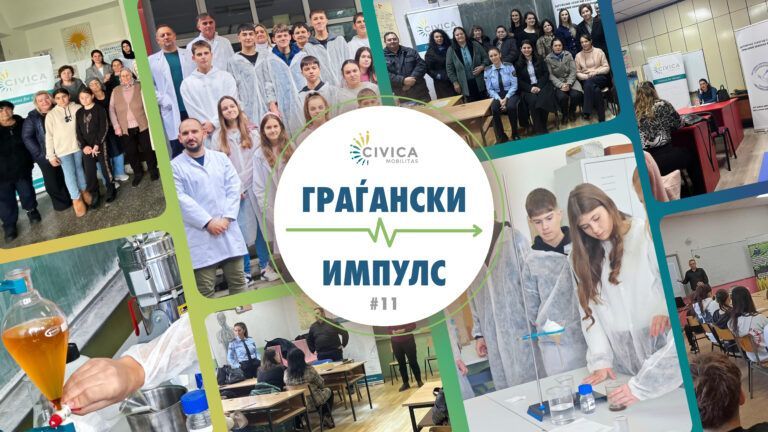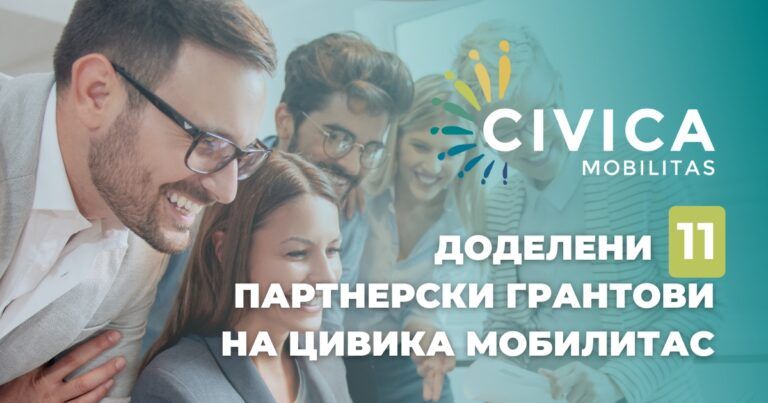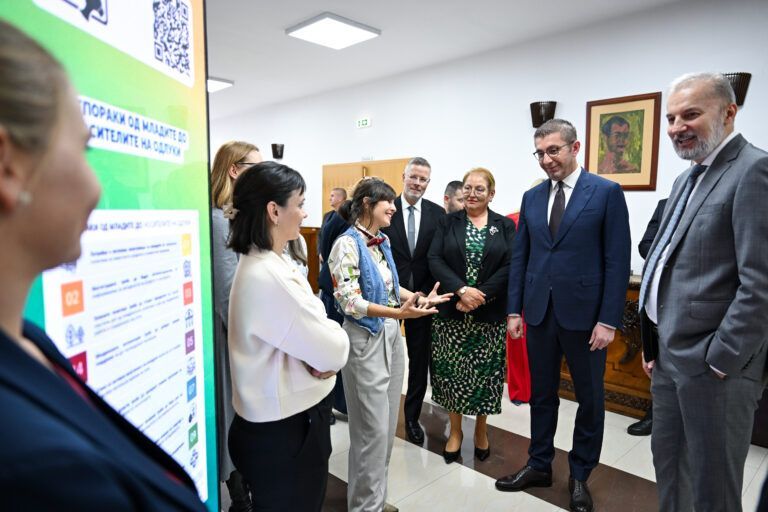“Build Strong Links with the Community!”
At the recent Civica Mobilitas workshop, “Good Practices for CSO Sustainability”. Led by Simon Forrester, the Center for Youth Activism KRIK presented their experience. This was the reason to talk to Mila and Angela about the efforts of the organization for function and deal with all challenges as they appear.
“We were happy to have the opportunity to present the sustainability of our organization as a good practice. It was a special honour to do this with Simon Forrester. Basically, we think that sustainability should be one of the basic principles that CSOs should strive for”, says Angela.
Talking about good practices, Angela tells about, according to her, the most successful and innovative mobilization for support to KRIK so far, which takes place via the fund-raising campaigns for “Inclusive Summer Camps for Youth”. The first camp in 2027 was fully funded by UNICEF, but from then on, KRIK has faced significant difficulties in providing the necessary funds for continuous organization of these camps. In the last two years, the organization turned towards an innovative approach – on-line fund-raising campaign with a creative element. For each donation that they receive, the supporters can choose jewellery or an art photography, handmade by KRIK beneficiaries. This provides not only the necessary funds, but it also provides the donors with a significant and personal relation with the beneficiaries, enabling them to directly support the creative efforts of the people supported by KRIK, says she. In order to make mobilization easier, every year KRIK implements a research to identify the companies that have a strong dedication to social responsibility, especially those that are interested to support the inclusion and development of the young people. After the organization identifies the potential partners, they contact these companies, explaining them the mission and impact of the camps, as well as the way in which they donations will be directly used by the participants.
“Working for 12 years with target groups that need bigger visibility and inclusion, it has become natural that we work much more on the visibility, especially because we think that all people and everybody’s story deserve to be heard. Therefore, the need for a social marketing plan”, as Angela explains the benefit from the workshop with Forrester.
The Center for Youth Activism KRIK is a CSO that has been working actively for 12 years with young people and vulnerable groups, encouraging youth activism and participation. The main activities are directed towards critical thinking, environment protection and improving the conditions for people with disabilities. Their vision is to be the voice of the young people who want to be heard and change the society. The cooperation with Civica Mobilitas has enabled them to develop the sustainability strategies of the organization, build a long-term stability and visibility of their work.
“In a way, such a plan unites all of our activities and goals, the work with the young people and volunteers from the European Solidarity Corps, an EU programme, the Multifunctional Day Centre “Scream” and work with people with disabilities, the three living units as part of the deinstitutionalization process that offer the service of living with support and the social enterprise “Print Collective”. We understood that sustainability does not only help us directly in our work, but it rather enables us to understand the society and the challenges that this category faces with. On the other hand, we enable the other stakeholders to give their contribution to the joint mission for better society”, says she.
Civica Mobilitas trainings have helped them improve themselves and acquire new knowledge, “while on the other hand, the efforts invested in the continuous development via training give us big support and togetherness. At the workshop, we were acquainted with the importance of properly make the social marketing plan, to pave the road to our goal more easily”, adds Angela.
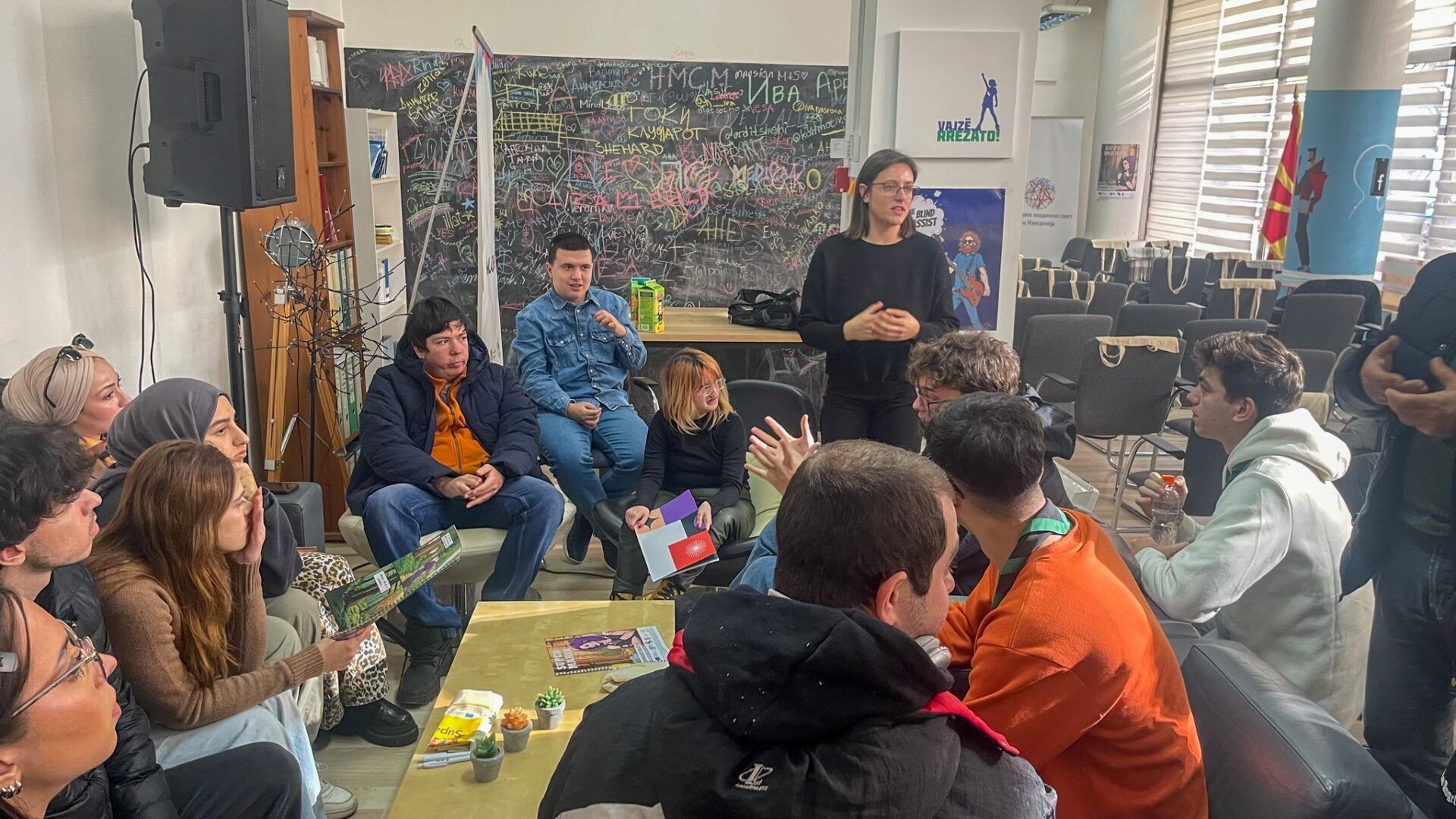
KRIK’s strategy to increase the financial sustainability includes further development of social enterprises, such as the enterprise for direct printing on textile and sale of the products made by the beneficiaries of the labour-therapeutical centre of KRIK. These initiatives provide an alternative source of revenues which can help in eliminating the dependence from external donors and grants, at the same time providing employment to the people with disabilities. Apart from the on-line fund-raising campaigns, KRIK also plans to strengthen and expand their relations with socially responsible companies. By developing long-term, useful partnerships, the organization believes that it can create more consistent support and harmonize its goals with the activities for corporate social responsibility.
Because KRIK is licensed as a provider of social service by the Ministry of Labour and Social Policy and it is actively involved in the process of deinstitutionalization in the country, the organization will continue to ask for government support. The strengthening of the cooperation with the municipalities, such as Kisela Voda and the advocacy for more stable and longer-term financial support of the national and local authorities will be crucial to maintain the social services and the units for independent living.
“The people, their desire to work and their feeling for belonging to the organization are also a big part of the sustainability”, says Mila. They think it is important to build mutual trust and it is done with honesty and involvement. “We are here all the time and they are here too. Every day we learn from each other and we constantly build that trust”, she adds. “As a team, we try to dedicate time and attention to analysing their needs which are improved with development and implementation of activities. When this happens in continuity, confidence grows and it is maintained”, adds Angela.
“The five of us from Skopje somehow ended up searching for educational activities in Kumanovo and it felt great”, remembers Mila. After a youth exchange in Ireland, where they learnt methods of non-verbal expression, the five of them decided to apply this knowledge home and that it how they started the cooperation with the special school “Partenie Zografski” which still lasts. “When we started, we had big support from the Center for Intercultural Dialogue with project management trainings, organizational development etc. They helped us to write out first project application, with which we received the first funds. It was a young exchange for people with impaired sight, funded by the National Agency for European Educational Programmes and Mobility”, says Mila.
Neither Mila nor Angela doubt that these 12 years of work are definitely and indicator that CMA Krik have a long-term plan of action. “There is a challenge, but the results are an incentive to continue developing and growing”, says Angela and she adds that when “you establish a community, it obliges you in a direct way, because we share the benefits and the challenges”, she says.

“You should never give up”, the two of them say to CSOs. “Even when it is not easy, when you can’t provide all funds or when there are failures. Continue working on your goal, there will be time when you will have the sustainability as well”. The recommendation is “to go out in the field, make a need analysis, and work with a goal and never stop searching for new ways.”
When it comes to mobilization that will make sustainability easier, Mila an Angela say: “Build strong links with the community! Never resist new technology, tools or methods that will improve your efficiency!”
We are happy that Civica Mobilitas contributes to part of the growth of this organization. We believe that their good practices can be a good read both for big and small CSOs. In the end, we all learn from each other, to meet the needs of our communities.


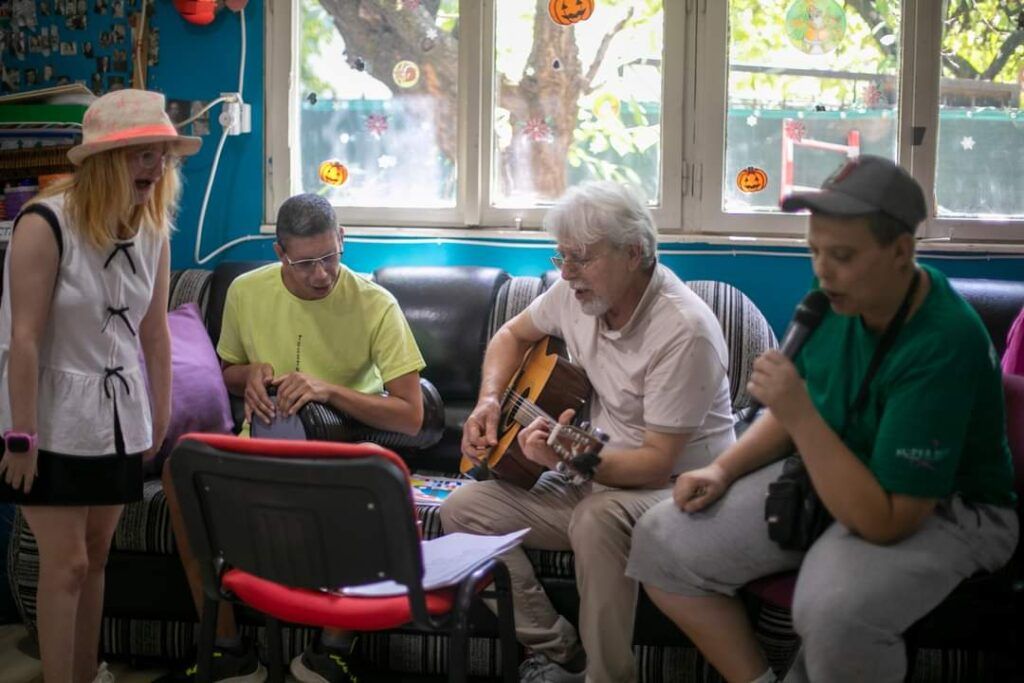



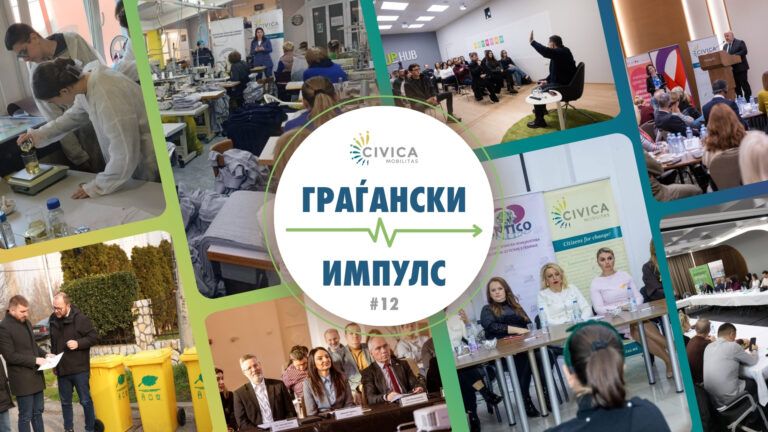
![Sre]ni praznici(2)](https://civicamobilitas.mk/wp-content/uploads/2025/12/sreni-praznici2-768x432.jpg)
